#disney princess meta
Note
Hi! I just started following your blog yesterday and have read a good portion of your Disney meta, and I have to say that you are 100% on point with all of it, specially when you are comparing and contrasting the original classic animated films and their live-action remakes. I can't stand those soulless, stiff cash-grabs and how they stain the legacy, message and characters of the original movies and get the point of the movies and characters's personalities and motivations so awfully wrong, it actually infuriates me in a way. People will say that we are way too attached to these movies and that we need to let the newer generations enjoy these new version, but why would you want to introduce the newer generation to a remake of a far superior movie that gets its message across much better and doesn't shoehorn agendas down people's throats? Most of the remakes have done a disservice to the original animated classics and have no grasp of what made them timeless and magical, but the key is in heart, which is what the remakes, for the most part, severely lack. I won't underappreciate all of the people that have worked hard in these movies and I do believe they want to make the best product they can get out, but the problem mainly lies on the people who are part of the story team and the executives at The Walt Disney Company. You made an good point about how the newer Disney Princesses, specifically the ones depicted in the remakes, are more about independence and freedom than love and sacrifice. Like, okay, independence and freedom have been part of their stories to an extent, but it was never the main aspect of it. The essence of Disney Princesses is their heart and soul, how they are willing to see the good in others, how they will sacrifice for those they love, how they will help those in need, how they inspire change in others. That is what a Disney Princess is at her core to me: Love. It's never been about how independent, tough and fierce they can be, even though that can be a part of their character, ofc, but it isn't the main selling point of them for me and many others who truly love and understand these characters. That's the reason, imo, they have always been the pillar and heart of Disney. They represent the ideal of femininity, love, compassion, hope, faith and selflessness; sure, they aren't "perfect", but they are still examples of what we could and should be. That's why it's annoying when people criticize and attack them. They aren't ditzy, useless and weak hot prizes for a prince; that's such a gross interpretation of them that's far from true; their external beauty accentuates their internal beauty. That's the whole point. The princes fight for them because of their love, their nurture, their kindness, their selflessness, etc., not simply because they are pretty or whatever. I know this has gotten too long, but given that you are used to writing long passionate posts on these topics just like me, I don't think my "mini-meta-rant" will bother you too much hahaha. Keep up doing your own thing <3
Thank you! This is very kind! I like a lot of your blog’s content, too!
Yeah, I work with kids, and one of them was telling me that her favorite movie is Live Action Aladdin. And I was floored. Then she said “and it’s so much better than the original!” And then I was mad.
Because what Disney is doing is changing the values that the stories and characters were invented to represent. So now I’ve got a kid who prefers the version of Jasmine who isn’t all about faith—she’s all about empowerment. So. Not only is she learning a completely different (and worse) life lesson from a character who used to teach a great lesson, but her tastes are getting developed toward cinematic junk food.
What Disney is doing is pasting over their old characters’ values. And they’re getting the newer generations used to a low standard for storytelling. Those are two major, culture-shaping parts of a kid’s development—what they value, and what they have a taste for. It’s just all-around bad, and everyone is right to be up in arms about it, including you!
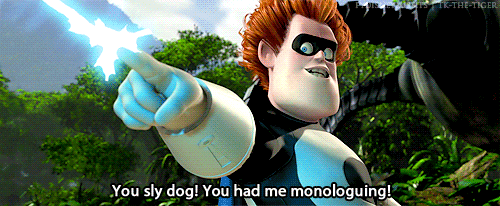
Anyway, thank you very much for your kind words!
#Asked#answered#thank you#totally agree#Disney princesses#Disney princess meta#live action Aladdin#live action remake#live action remake hate#idiosyncraticnebula
13 notes
·
View notes
Text
Disney Princesses and their mothers: a deep dive (Part 2)
My first post about the mothers of the Disney Princesses discussed the Disney Queens who appeared in their respective films. This post will discuss the missing Disney Queens, and what, if any, impact their absence had on the plot.
The categories I used in my previous post were:
1. If the Princess’ mother appears in the film.
2. If the Princess’ mother survives until the end.
3. If the Princess’ mother’s name is revealed in the film.
4. If the Princess’ mother gets to raise her daughter herself.
5. (If none of the above conditions apply) if the Princess’ mother is mentioned in the film by the other characters.
Sadly, none of the remaining Disney Queens fullfil the first three categories. Snow White, Cinderella, Ariel, Belle, Jasmine, Pocahontas, and Raya all have deceased mothers who never appear in their films, but their mothers have varying levels of impact on the plot. In this post, I will examine the three deceased Disney Queens who are mentioned in their films: Cinderella’s mother, Pocahontas’ mother, and Jasmine’s mother.
First of all, Cinderella and Pocahontas share a parallel of owning one of their mother’s possessions, which I made a previous post about:
Cinderella has her late mother’s dress:

And Pocahontas has her mother’s necklace:

Unfortunately, both possessions get destroyed throughout the course of the film:


Although Pocahontas’ mother’s necklace is restored at the end of the film, Cinderella’s mother’s dress remains in tatters 😔
Furthermore, Pocahontas’ mother is unique in that, although her name is never revealed and the time and circumstances of her passing are a mystery, she is referred to multiple times in the story by different characters, and Pocahontas herself:
Before Pocahontas appears on screen, Kekata says that:
“Pocahontas has her mother’s spirit. She goes wherever the wind takes her.”
Chief Powhatan gives Pocahontas her mother’s necklace, saying:
“Your mother wore this for our wedding. It was her dream to see you wear it at your own.”
When Pocahontas visits Grandmother Willow to ask for advice about her path in life, Grandmother Willow says:
“Your mother asked me the same question. I told her to listen.”
Chief Powhatan visits Pocahontas and Nakoma in the fields, he says:
“When I see you wear that necklace, you look just like your mother.”
Pocahontas: “I miss her”.
Chief Powhatan: “But she is still with us. Whenever the wind moves through the trees, I feel her presence. Our people look to her for wisdom and strength.”
The viewers have no idea how old Pocahontas was when she lost her mother, or for how long she got to raise Pocahontas, but the filmmakers stress how Pocahontas’ mother was and is an important figure in her life, and the lives of her people.
Unfortunately, Cinderella’s mother receives far fewer mentions in her film: The narrator introduces Cinderella’s family as: “a widowed gentleman, and his little daughter, Cinderella.”
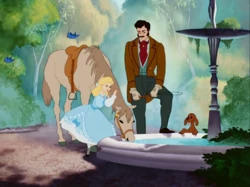
The narration goes on to say: “Although he was a kind and devoted father... still he felt she needed a mother’s care.”
Her mother’s absence affects the plot of Cinderella’s story more than anything else. Cinderella’s mother’s only other mention in the story is when Cinderella decides to make over her mother’s dress to go to the ball:
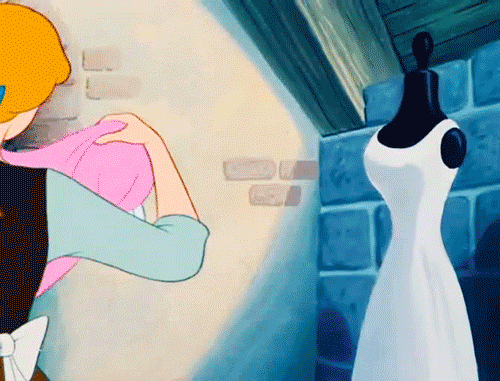
Cinderella: “Isn’t it lovely? It was my mother’s.”
The fact that the dress was probably one of Cinderella’s only mementos of her mother makes the dress-ripping scene so tragic 😔
Finally, the third (deceased) Disney Queen who gets mentioned in her daughter’s film is the unnamed Sultana, Jasmine’s mother.
The one and only mention of Jasmine’s mother in Aladdin 1992 is made by the Sultan:
The Sultan: “I don’t know where she gets it from. Her mother wasn’t nearly so picky.”
Otherwise, Jasmine’s mother has no impact on the plot, and Jasmine herself doesn’t speak of her. (Now I have the headcanon that if Jasmine’ mother had lived, she would have been just as outspoken and competent as Jasmine, and Jafar would have never got the upper hand if the Sultana were in charge!)
Final thoughts
The filmmakers of the three films give no indication as to whether the Disney Queens died in childbirth, or whether they lived long enough to raise their daughters. Cinderella is shown to be a little girl (maybe 10-12? It’s hard to tell) in the beginning of her story, but the viewer can infer that her mother lived for a few years of Cinderella’s childhood. Similarly, the viewer can infer that Pocahontas has some memory of her mother, as she says that she misses her, but that could still mean that her mother died in childbirth and Pocahontas misses her in general. In Jasmine’s case, either can be true.
Although the reference to Jasmine’s mother could have been deleted with no impact on the plot, Cinderella and Pocahontas’ mothers’ possessions and presence cannot be deleted from their stories without greatly affecting the narrative.
7 notes
·
View notes
Text
KH Spec: Princesses of Heart As Stars, part 4/?
For what limited game-time Jasmine has, she certainly makes up for it with respect to the Themes of KH's Princesses & how the chronologically older princesses relate to later ones: this part will largely focus on how Jasmine expands on existing themes amongst the princesses & how she can act as a guide to identifying future "Princesses".
Thusly, Part 4 focuses entirely on Jasmine & how she thematically links the Seven Lights (past, currently known & as-yet-unrevealed) together.
Jasmine
Disney's 'Aladdin' is a film connected to the themes of Wishes & Love by its premise: Aladdin's story is about his dream of reuniting with Jasmine, with whom he has fallen in love, despite their differences in class... and about the Wish-granting Genie acting as his Wingman.
Dreams, Wishes, Love & Miracles: Jasmine fits the pattern.
(She also does a lot of Self-Reflection, no bodies of water required, though her magic carpet ride does depict her interacting with physical water: Jasmine is named for the flower, one bright & vaguely star-shaped, yes I'm kind of reaching with this last idea)
With Jasmine's connection to the preceding Textual Themes of Princesses established, we are able to expand on the Implicit Themes they share: 'Freedom', 'Curiosity' & how both themes tie into 'Responsibility'. The last theme is related less to each heroine within their individial films & more to their collective roles in KH as a whole.
Freedom, Curiosity & Responsibility
Where a dream of "freedom" could only be implied for Snow White, Cinderella & Aurora through their storybook "Happily Ever Afters" due to the IRL society they were contemporary to, Jasmine was able to express her desire for it outright.
Jasmine, like Aurora, has grown up sheltered & removed from wider society. As a Princess, Jasmine feels a Responsibility to know her people and, as a person, she is Curious about the Wider World: Jasmine is the first of these princesses to begin her film with safety of body & mind, enabling her to have Dreams beyond the initial Coming of Age concept of Freedom as simply Leaving Childhood & its (often literal) Trappings Behind.
Freedom Through Love
Jasmine's Freedom is actualized by her gaining the emotional support to confidently stand up to her father (& against the influence of Jafar) and assert her wishes to postpone marriage in order to first explore. Aladdin's Love functions as that emotional support, and Jasmine's Love of Aladdin strengthens her conviction to know the people she will rule.
The Founding Princesses would not have been allowed to openly admit a desire for freedom, instead projecting the concept onto finding their "True Love": conventionally, marriage to a man was the method by which a girl reliant on her childhood home & caregivers could become an adult... in the consenual care of her husband, and he in hers.
Thusly were the Anonymous Princes Charming deployed!
To the Princess Snow White, wanted dead by her royal Stepmpther & found in deathly sleep by her newfound woodland family, an Anonymous Prince Charming to share a duet that enables his later identification (by shared anecdote) as the remedy to Snow White's curse! This Prince then takes the recovering Princess away, presumably in search of a village with an actual medical professional to address any repurcussions of her Resurrection. Unsaid but technically applicable is the importance of a fugitive Princess with a Suddenly Missing Step-Mother, the Acting Queen-Regent, having a Prince to corroborate her Alibi. Said Queen may have been killed via cliff (& angry woodland mob) but with Snow White the legal heir, she was only a Regicide away from being Queen-Monarch.
(i can & would frame the Happily Ever Afters of Cinderella and Aurora with this cracktastic political context but that would be gratuitous to the point being made)
Responsibility: The Prince(ss) & The Pauper
Jasmine & Aladdin are an example of the "Princess & Pauper" dynamic, something prior princesses have touched on but were unable to explore in their original films: Snow White & Cinderella were forcibly made into servants, Aurora's safety required her growing up isolated & far removed from any luxury (the Good Fairies not even using their magic).
The dynamic, typically romantic, serves as a vehicle through which the privileged character (the Prince/ss) can better themself & their people by understanding the circumstances of a Pauper: it is also used as a quick explanation for how the Pauper can be rescued from their desperate situations at all.
This dynamic is explored in several of Disney's Direct-to-Video sequels and some have already had elements used in the KH series already: the premise of KH4, where Sora seems to have forgotten Riku & Riku seeks him out at the encouragement of the Fairy Godmother, somewhat resembles the plot of one of Cinderella sequel film.
Given that the KH series is named for a KINGDOM Hearts, pauper-adjacent heroes developing galactic senses of 'Responsibility' prior to any (additional) Royal Revelations is fairly important. That said, the connection the Seven Lights have to Kingdom Hearts itself is not entirely clear: they act as substitutes in its absence and seem collectively capable of mimicking some of its alleged powers. Kairi's consistent association with stars can, to a degree, inform that the Princesses function as "solar substitutes". That the primary themes (wishes, hopes & dreams; love, miracles & freedom) shared by the Disney Princesses identified as "Lights" are represented with star-like imagery or stars outright is supporting evidence to this premise.
Curiosity: The Wider World(s)
Jasmine's curiosity is a product of her sheltered upbringing, of her boredom for lack of responsibilities despite her evident interest (& talent) in fulfilling them. Curiosity is also a primary feature of any Coming of Age: as the KH series is itself an extended Coming of Age story for Sora, one told in the "Heroine's Journey" framework, it makes sense that many of Jasmine's frustrations and dreams so easily recall those of Sora & Riku (&, uh, Xehanort).
Kairi, notably, does not display these Coming of Age markers until the very end of Melody of Memory.
Through the lens of Jasmine, the Coming Of Age markers common to contemporary fiction can be identified in the Founding Princesses before her: Snow White's curiosity is present in her film, largely as a plot device & method of endearing her to others; Cinderella is too overworked to be truly curious beyond the freedoms & possibilities of having one night off to attend a Ball; Aurora's curiosity foretold her doom by spindle... but it also enabled her meeting with Prince Philip, her (also foretold) "salvation".
Freedom Through Song
Even before Jasmine was allowed to admit her desire for freedom, Disney Princesses were able to allude to their true feelings through song: Snow White's "I'm Wishing"; Cinderella's "A Dream is a Wish Your Heart Makes"; Aurora's "Once Upon a Dream". These songs are thematically connected through the song "Wish Upon A Star", from Pinnochio, and the four songs solidified the symbols the KH series seeks to emphatically connect: Wishes & Stars; Dreams, Love & Miracles; the Human Heart; Coming Of Age; Curiosity & Freedom (with all the Responsibility that entails).
Jasmine's "A Whole New World" draws all the connections of the [Wish Upon A Star] series of songs back to the premise of the KH series itself: exploring new worlds, making wishes & dreams (of the heart) come true, the responsibilities of power & the freedoms made possible by love.
It should, at this point, be noted that despite numbering amongst the Seven Lights herself, Kairi is NOT the KH-original character who best exhibits the themes of the Disney Princesses who have now "Come Of Age" (& so passed on their mantles as Lights): the character most strongly associated with the key themes of the Disney Princesses is, in fact, Riku. Riku has even had his "own" songs, ones with themes consistent with the Princesses discussed thus far: the KH2 song "Passion" & the KH3 song "Chikai". For lyrical analysis on "Chikai", the youtuber TennelleFlowers (AKA the mastermind of the Six Hour Riku Is Gay Video) goes into the song, lyric by lyric.
Given that I have just sneezed for a 4th time in a row, I will conclude this post on Jasmine: Part 5 may end up continuing the ways she thematically ties the Princesses together, leading into a hopefully brief section on Belle (due to Better Analyses existing on how she & her story are consistently used to parallel the relationship of Sora & Riku: I'd specifically recommend reading the "Aitsu" translation essay on Chain of Memories by the SoRiku Ultimania).
#kh meta#disney princess meta#princess jasmine meta#kh theories#princesses of heart#princesses of light#crud i forgot to explain how jasmine acts as a template for who future lights will be#who knew i could write so much about princess jasmine when i nearly fell asleep writing about alice#character study#the heroine's journey#nomura thinks of everything
1 note
·
View note
Text
OK OK OK OK-
Ok is ANYONE else talking about the “evil coffee” theory yet??? Or is that just the discord I’m in
Cause like…. Who the FUCK puts THAT much emphasis on a RANDOM CUP OF COFFEE??
I mean Aziraphale literally says “I made my position clear” and then Metaron is immediately like “aAAH, but I brought you.. an OAT milk LaTé 👹” with foreboding music and ominous shots like some scene straight out of a fucking Disney movie, OH Kay… I see you you Jafar sounding bitch 😭😂
#PLEASE rewatch that scene#he sounds so hilariously evil#it is so obvious on rewatch#good omens#gos2 spoilers#season 2#episode 6#ineffable husbands#aziraphale#crowley#Mettatron#Disney princess aziraphale#biceratops#analysis#meta#evil coffee#coffee theory
6K notes
·
View notes
Photo


yall ever just
#kingdom hearts#soriku#kh3 spoilers#melody of memory spoilers#disney#disney princess#kh meta#ali's kh meta#this has already been pointed out numerous times#i just never realized they actually used the og dialogue from cinderella in khux#aka 'be gay'#fuckin wild#fairy godmother is also basically in the same position in both pics#while riku is where cindy was#more or less
1K notes
·
View notes
Text


dedede gets attached to every small creature he comes across at this point lol
#he’s a disney princess or something#normally i at least do a rough script for my comics or rotate them in my head for a few weeks#but this one just sorta happened#gonna be honest i hugged my dog and i was so overwhelmed with love and and yeah#quinn being entirely self indulgent part 965 (i won’t stop)#kirbyposting#my art or something#kirby#meta knight#king dedede#metadad#dededad#i dont really know when to tag as ship but it’s there as per usual#it’s funny i was just rambling to my friend about how i dont like to draw ideas im not committed to#but—and forgive me for using the phrase—here we are (lmao)#you know in spite of this im a cat person#is there an awoofy tag#awoofy#nice
288 notes
·
View notes
Text
Why we love Asha x Starboy
I just watched Wish, and it is because of the lack of meaningful character interaction in the movie. Aside from Asha and Magnifico, there are only so many characters to bounce off with Asha. There are 7 friends, but they're surface-level at best, with one line per character. The same goes for Sabino (Asha's grandfather), Asha's mom, and even the goat! Star in the final movie is a one-note "follow your dreams" character. There is no added dimension to these interactions, making the film feel hollow.
Giving the Star a humanoid appearance and a potential romance with Asha suddenly makes Wish more interesting. By making Star a human, writers are less likely to treat them like a random animal sidekick and more like a human character.
Meaningful character interactions give viewers something to cling to and relate to emotionally. The Disney Renaissance emphasizes romantic subplots and family conflicts for this reason. You can also find this when the main hero interacts with an animal sidekick. They provide the heart of a movie.
As a writer, I'm attracted to romance subplots because, like any relationship, they provide exciting character interactions and emotional investment. I'm beating a dead horse, but just because a princess has a romance arc doesn't mean she isn't empowered. Belle and Mulan are Disney princesses with love interests, yet they are still fully fleshed-out characters. Romance can also thematically enhance a story. Beauty and the Beast would not be the same without a romance between Belle and the Beast.
In the context of Wish, I think Asha already has an animal sidekick with the goat. She only needs one (they already have too many characters with the 7 teens). It is not that animal sidekicks couldn't be compelling characters. Mushu from Mulan is an example of creating entertaining animal sidekicks. He even has a character arc that complements Mulan, the main heroine. However, with Disney standards right now, you can't help but feel they might butcher the animal sidekicks.
Even the OG movie Snow White checks the mark for meaningful character interactions. It is not between the nameless prince and Snow White, but it is with the seven dwarves. Ironically this is where Asha's 7 friends are based off. The most important relationship of Snow White is literally in the title of her movie: Snow White and the Seven Dwarves. Unlike Wish, the reason why they can get away with 7 dwarfs is because the film is centered around the relationship between them and Snow White to avoid bloat.
It doesn't help that Asha and Magnifico themselves feel like bland cutouts. If you compare them to Disney's rosters of heroes and villains, they'd pale in comparison. They have the most interesting interactions but it feels like the bare minimum.
Whenever I look back on a movie, I remember a thought-provoking thematic beat or even a funny character interaction. Wish doesn't leave room for much. The movie feels like an amateur school play they show to grade-schoolers which is a low for Disney.
You know what's sadder?
I wish I could've had that meaningful character interaction with Asha and her grandfather, Sabino. They had something with Asha wanting to grant Sabino's wish but Sabino refused to let it be granted. In the movie, the conflict lasts for about a scene, and then it shifts to granting the wishes of everyone in Rosas.
You can see why the writers toyed with the idea of the Star Boy being a younger version of Sabino. The relationship between Sabino and Asha is the heart of the story.
This imaginary ship buried in concept art gave what the movie lacked: a heart. It is not enough to spew out inspirational messages and call people stars. One should also incorporate humanity.
I have a lot more thoughts on the story, specifically in its thematic beats but that is for another time.
127 notes
·
View notes
Text
Contrary to what some might believe the fanon interpretation of Cinderella isn’t the slight they think it is to her. I mean take a look at her situation. If we go by aesthetics of the Disney movie the story takes places in 1800s England, Cinderella’s family estate has been taken over by her stepmother, she’s forced to do unpaid labor the whole day, and though it hasn’t been said out loud it’s likely her education had been put to stop the moment her father died. Meaning Cinderella has no title, no estate, no money, and no formal education. If she tried to run away there would be no resources to help her.
Cinderella is quite literally stuck between a rock and a hard place. The only realistic way that Cinderella could get out of her situation is by marrying and marrying well. So while marrying a prince might not have been Cinderella’s goal when she went to the ball, I think that there’s nothing wrong if that was her intention. In this scenario she does the opposite of what she is accused off (i.e needing to be rescued).
In fact in canon Cinderella saves herself too. The only reason why the fairy godmother comes to her to fulfill her wishes is because she never stopped believing, she literally says that to Cinderella. And the reason why the mice, the birds, and the dog go so hard for her is because she saved them and showed kindness to them first.
So whether in fanon or in canon Cinderella doesn’t need any saving.
#disney#cinderella 1950#cinderella#princess cinderella#meta ish#just because cinderella doesn’t fit your modern idea what a heroine should be doesn’t mean she’s a heroine altogether#cinderella is amazing#both in canon and in fanon#deal with it
270 notes
·
View notes
Text
Trope - Disney Princess Syndrome
"Disney Princess Syndrome" is my personal name for the trope of a rich or powerful character portrayed as "Nice", "Good" or "Down to earth". Because they want to hang around "Normal/Real people" and want to be treated like a "Regular person" or otherwise does not think their phenomenal wealth makes them abnormal.
This trope/character concept is usually contrasted against another rich or powerful persons who flaunts their wealth intentionally, is aware they are rich and tends to be snooty, cocky or otherwise act in a manner that is more reflective of their phenomenal wealth.
Usually these characters are contrasted so that we like the former but hate the latter but weirdly… I often find myself either disliking both or liking the latter more. Largely cos they at least seem self aware of their circumstances and so come off as less frustratingly flippant or willfully ignorant.
Examples will be drawn from, Miraculous Ladybug.
I will largely avoid talking about how X character was raised, or trauma that might influence this behavior. But keep in mind people with bad home lives can often act out in ways that don't make them a "good" victim.
In ML, you have "Wants to be a normal boy" Adrien, "Wants to meet sincere people" Princes Ali, and "This is all so artificial" Musician Jagged Stone. They are contrasted against hotel heiress, Mayors daughter & smug about it Chloe.
Now:
Chloe's a brat, a jerk & a snob to be sure, however I still somehow find her less hypocritical or deluded than these other three because at least she seems aware of her circumstances and what they mean for her VS others.
Jagged treats doing a small autograph session with the mayor like its some horrible imposition and he flips out at being expected to follow trends he deems artificial. But he also drags his literal assistant with him everywhere to manage his life, keeps a pet alligator on him at all times & can be extremely rude and demanding. But it never feels acknowledged in the same way as with Chloe, because he's 'real'.
Prince Ali acts like its weird for people to try and charm or otherwise please him when assigned to give him a tour for a whole event about himself. He also seems to neglect what would be fairly typical greetings for someone of his class & position despite likely being taught them. This again ties into making him seem 'genuine' but comes off as just odd.
Adrien balances it best by wanting his father to be less controlling and his father is indeed controlling. But he's also only bothered by Chloe, her parents or his fathers haughty behavior if it alienates him or people he wants to be friends with. He laughs it off or otherwise tends to ignore it with staff but is meant to be better.
This isn't to say a character 'can't' want these things, or find the trappings of wealth utterly unsatisfying. Especially children who are not themselves actually rich and exist at the whims of their parents who are often functionally immune to the law.
Its more an issue with how the trope tends to be executed. Both in terms of the "Disney Princess" who wants to be "Out there" having no self awareness of their wealth, or internal hypocrisy. With this being framed as more endearing than anything, despite often coming off as entitled or selfish by accident.
Or in how the rich jerk just ends up feeling more grounded, or accidentally becomes sympathetic because they are usually an antagonist. Thus meaning they not only have to lose, but usually are surrounded by people like themselves. Leaving the impression their behavior is less to do with having the money to get away with t and more born of mistreatment.
& that as they say is that.
35 notes
·
View notes
Text
Updates DisneyVerse Timeline! Now that we've got a better look at the costuming in Wish (and got confirmation on when Encanto takes place. Still think the costuming fits better with the 1910s but I can take correction)
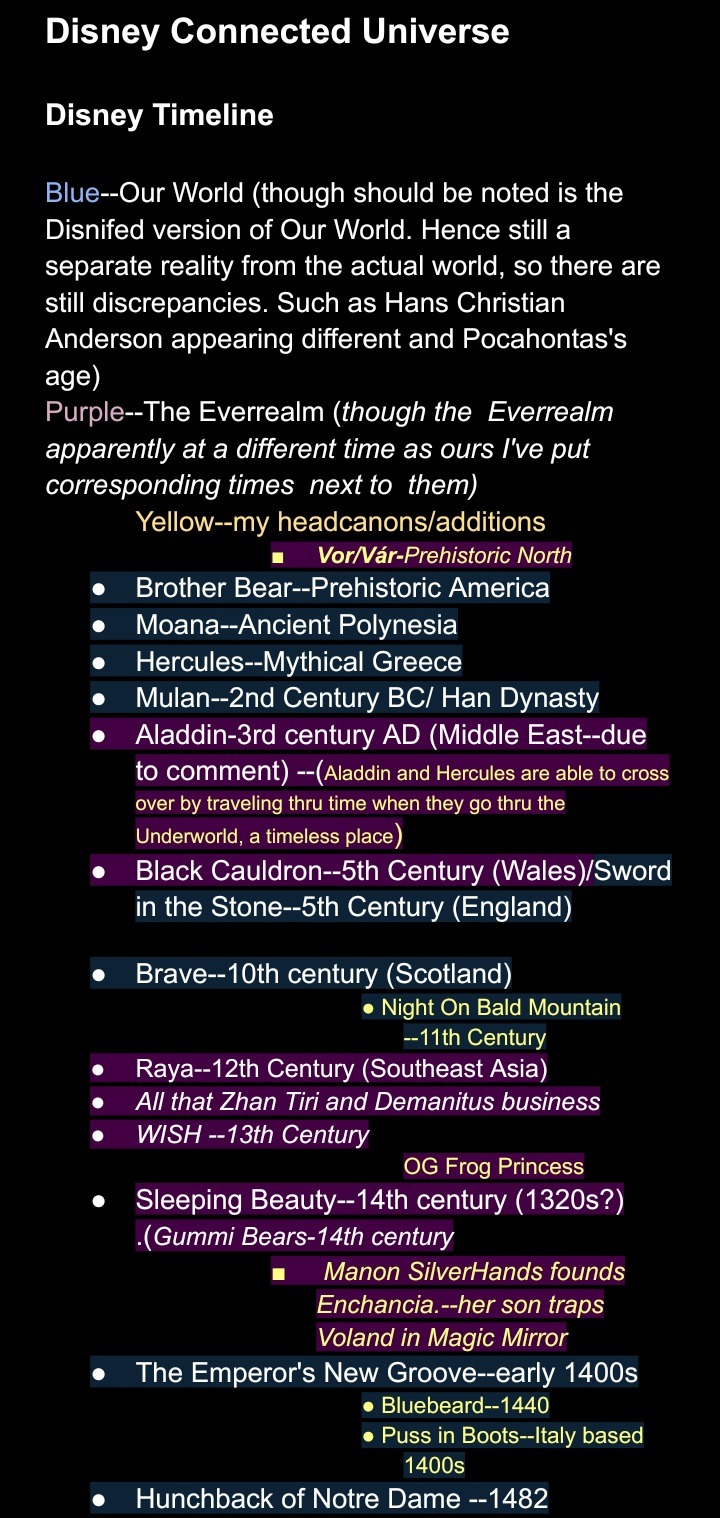

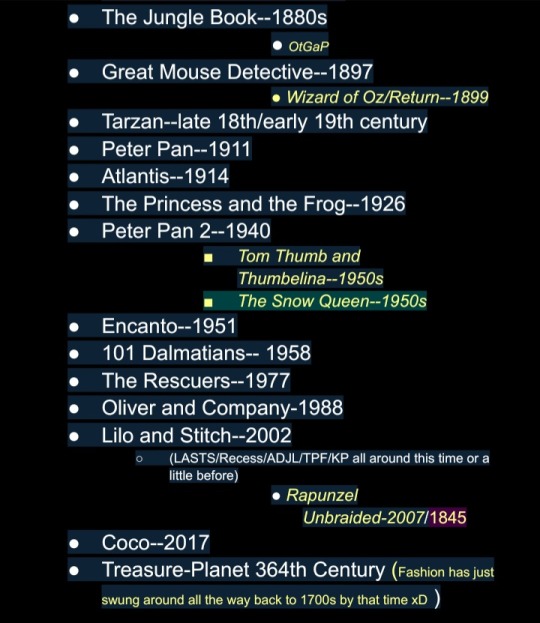
#disneyverse#disney#disney crossover#disney timeline#disney meta#disney movies#wish 2023#disney princesses#disney heroes#disney snow white#sleeping beauty#cinderella#the little mermaid#beauty and the beast#aladdin#pocahontas#mulan#hercules#tarzan#princess and the frog#enchanted#tangled#frozen#moana#raya and the last dragon#sofia the first#elena of avalor#lilo and stitch#treasure planet#atlantis
95 notes
·
View notes
Text
If you haven’t seen Wish yet and you love Disney, do not go see it. I am telling you now. It is ripping out the hearts of the Disney movies you love and then waving their corpses around as if celebrating those hearts.
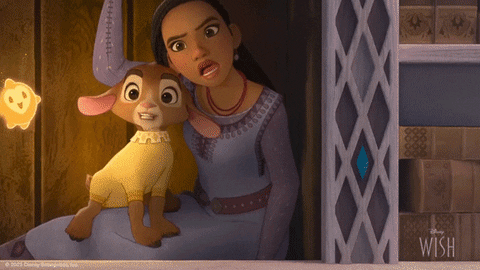
I’ll explain why, again: the message of Wish? Awful. Anti-Disney.
But they've been doing this for a long time. Saying one thing with their movies, and saying another with their PR and Disney Parks Soundtracks.
I'll explain.
Main Idea of Disney's Wish (and the You Are the Magic theme park song and merch): "The power to make your wishes come true is in you."
≠
Most Disney Movies' Idea on How to Have Wishes: "Do what's right, (trust a higher power) and something even more wonderful than what you wished will happen."
Don't try to argue with me about this. You have to look underneath the slogans and the sweater designs and the song titles to what the stories actually support to acknowledge this.
Because you can’t say “do what’s right” has power unless you answer the question “who gets to decide ‘what’s right?’” (Which, coincidentally, is a question Wish brings up and then doesn’t answer.)
Audiences of Disney used to accept that wishing on a star was much like prayer; there’s something you long for, and it’s out of your hands, but you wish for it and you do what you know is right in the meantime. And you’re not crushed, you’re not downhearted, because somewhere in your mind you trust that the combo of those two things—wishing on a higher power and diligence to do what’s good—will be what makes your wish come true.
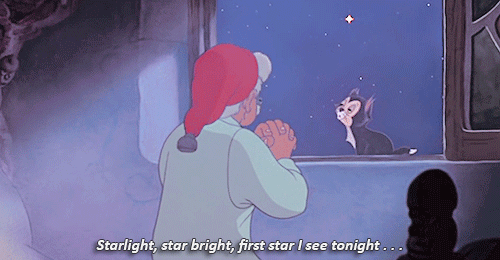
Trust in a higher power—COMBINED WITH:
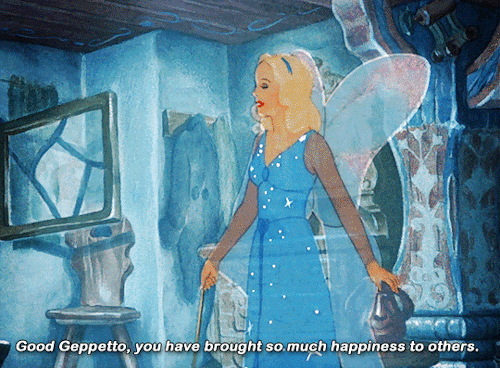
—diligence to do what’s good.
The Blue Fairy (higher power) gave Geppetto his wish specifically because he had demonstrated commitment to do good, whether he got what he wanted or not.
The Fairy Godmother (higher power) gave Cinderella her wish specifically because she kept on being kind and good to low creatures like mice and wicked stepsisters, whether she got what she wanted or not.
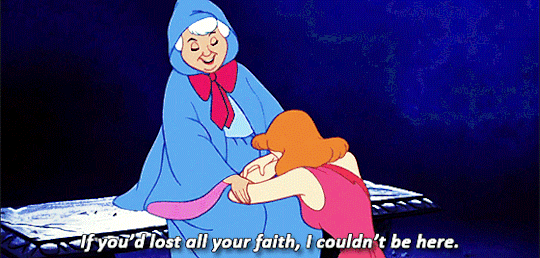
Do you know why that combo (higher power + diligence to do good) is impactful? Timeless? Important?
Because it’s selfless. You want something, but you’re not going to sacrifice doing the right thing to get it. You’re not going to focus so hard on making what you want a reality, on your own, that you miss out on things that could be more important than what you want. And, you’re not so self-focused as to believe that if you don’t do it, it won’t get done.
Jeez, that’s the whole point of The Princess and the Frog!

Tiana wishes to have her own restaurant, and she believes that only her own hard work will grant that wish. She misunderstands her dad’s advice before he dies. She isn’t willing to trust a higher power combined with her own diligence to do good—she only trusts her own ability.
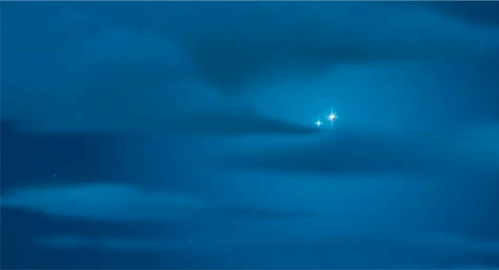
It’s not until she realizes that Ray, the character of faith, was right all along that she learns—what she wished for was too self-focused. It wasn’t complete without love. Something bigger than herself. And getting that was never going to happen just based on her own hard work.
But you know what? It was never going to happen just by a “higher-power” flavored shortcut, either. Because Facilier offers her her wish if she’ll just trust him, no hard work needed. But what does she say?
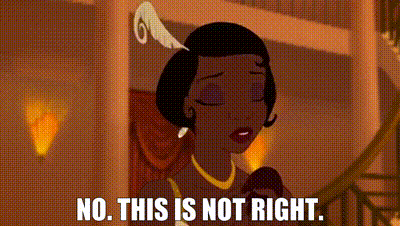
Trust in a higher power + diligence to do what’s right = selflessness, and getting more than you could have ever wished for. And if your wish is selfish, doing those two things will change your wish into something selfless.
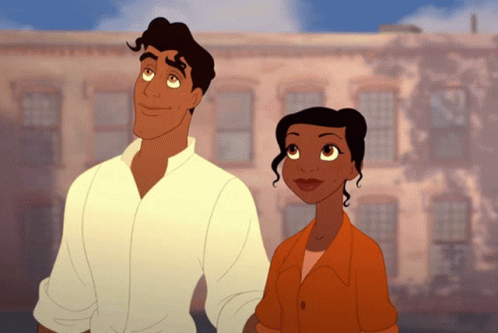
More examples? Get ‘em while they’re hot, in case Wish made you forget, just like the current #NotMyDisney executives have forgotten, what real Disney wishes are for.
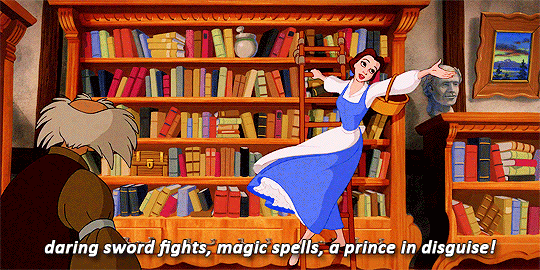
Belle wishes to have adventures in the great wide somewhere--but when she's imprisoned and that chance is taken from her it's not reversed because she worked hard to make her wish come true. It's granted because she gave up her wish for her father: she just did the right thing, regardless of her wish. And in the end, she does get what she wished for, which is adventure in an enchanted castle...and much more, because she gets true love, a throne, and a castle full of friends.
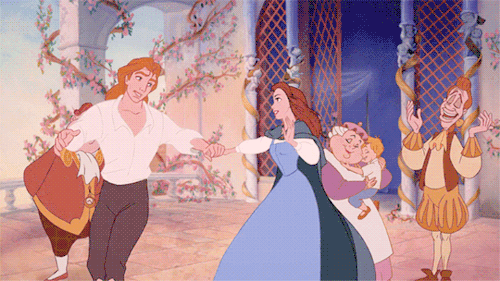
How about the One Who Started It All? The one Wish is failing to pay genuine tribute to?
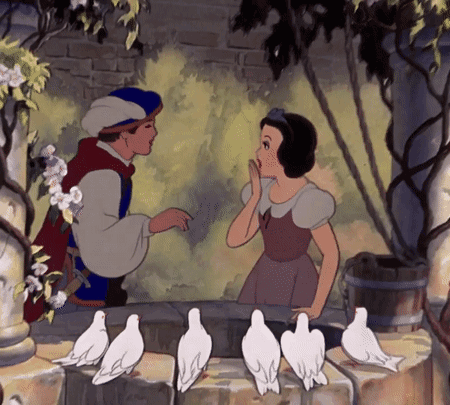
Snow White wishes for someone to love her, and he does--but when they're separated, she does not exercise power to make The Prince come back to her. Instead, she loves who she can where she’s at—the Dwarfs. In the meantime, she has faith that he will keep his promise, and that pure trust in a higher power outside of her control is a big contributing factor to why the Dwarfs come to love her, and learn from her...and in the end, even more than she could've wished happens. He does take her to his castle, but she also has seven new friends who also love her, and the Queen is dead. And she didn’t need to use “the power in her” to work harder and get it done. She just needed to not focus so much on herself at all.
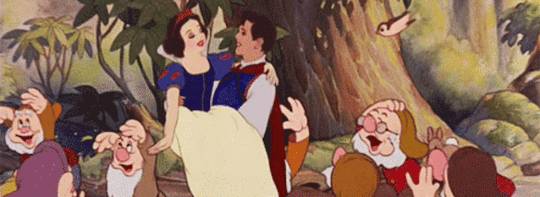
How about a male main character? One who’s wish starts out selfish, but after learning to wish on a higher power and be diligent to do the right thing, gets more than he could wish for?
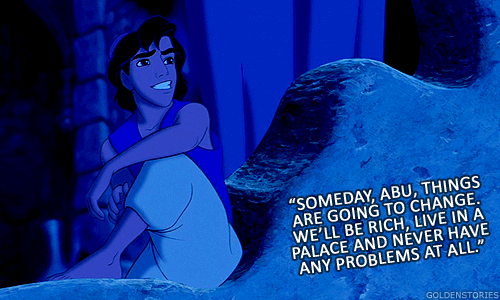
Aladdin wishes to be somebody different (somebody he believes Jasmine could love, somebody who lives in a palace and is respected and “never has any troubles at all.”)—but doing everything in his own power for that wish proves that it was selfish all along; so he switches to doing the right thing, regardless of if his wish comes true, and he gets even more than he could’ve wished. He gets real love with Jasmine, he gets his friend Genie, and he gets to be free from feeling “trapped” because he doesn’t have to hide who he is anymore.
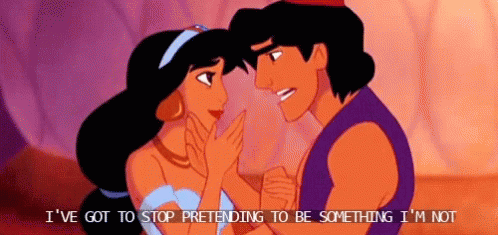
Or Simba?
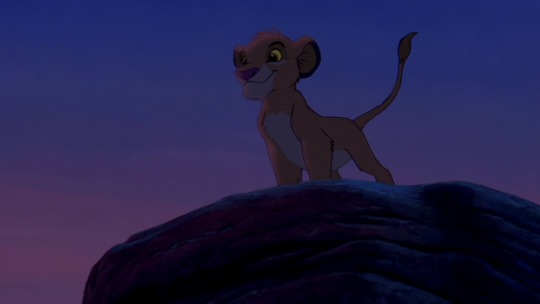
Simba wishes to get to do whatever he wants as King—but when Mufasa dies and he’s convinced it’s his fault, it isn’t for that wish that he goes back to Pride Rock to confront his past and his Uncle. It’s because he had an encounter with a higher power—his father—that helped him to realize his wish was selfish all along. He gives up the selfish wish, and he goes back to take his place as king, not so he can do whatever he wants, but so that he can take self-sacrificial responsibility that comes with ruling. And because he just does the right thing, finally, he gets more than what he wished for.
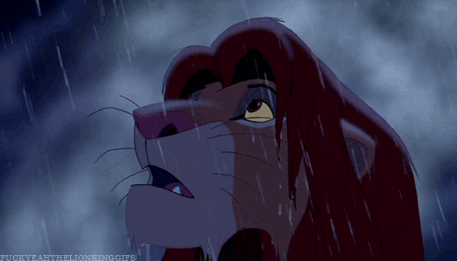
How about something more recent? Zootopia.
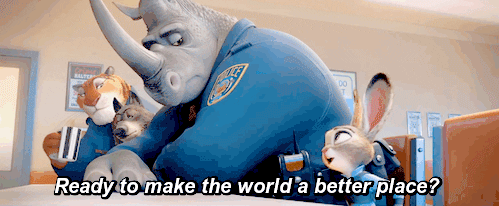
Judy wishes to make the world a better place by proving she can be what she wants to be and catching bad guys—but when she tries to make her wish happen on her own, in her own abilities, she fails and is forced to realize that she should’ve been looking for help by understanding “bad guys,” like Nick. It’s only after she humbled herself, admits she’s wrong, and changes her wish from “proving I can be what I want and catching bad guys” to “proving that understanding each other makes the world a better place” (much less self-focused) that her wish comes true—and so much more. She does make the world a better place, and she does get to catch bad guys, but she also gets to befriend one who was a good guy all along, and become all-around more effective at her dream job.
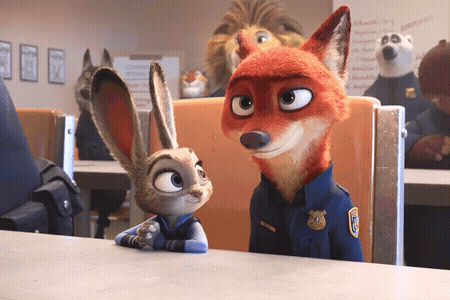
This is how Disney always has been. Because it’s at the heart of good storytelling, and even life (not to get too dramatic.)
The power is not in you. Because it’s not about you. Self-sacrifice, faith, and doing the next right thing regardless of if you get your heart’s fondest desire is what makes more than just your wishes come true. And there has to be belief in a higher power to make that message powerful.
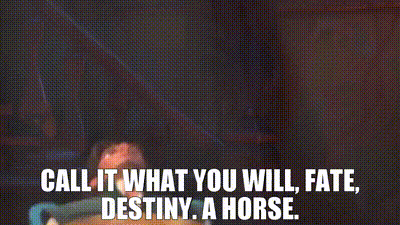
But Wish?
Not only is it bad at showing instead of telling. Not only is it lazy and soulless.
But it’s characters rip the Star out of the sky and say “don’t wish on this. Wish on yourself, to get what you wish for. You don’t need a higher power. You don’t even need to sacrifice to do what’s good—whatever you do is good, because you are the one doing it.”
That is wrong. That is not true, and it is not powerful. There’s no sacrifice in focusing on or placing your trust totally in yourself, and it undoes every good thing Disney has done up until now.
And it undoes it on the 100th anniversary, and it flaunts Easter eggs of the very things it’s undoing.
#pinocchio#disney#wish#Disney’s wish#wish Disney#Wish#Disney#meta#character analysis#storytelling#the princess and the frog#Disney fan#princess tiana#tiana#Naveen#Dr. Facilier#disney villains#asha#king Magnifico#Valentino#queen Amaya#ariana debose#chris pine#Cinderella#classic movies#film analysis#animated movies#animation#wish 2023#Aladdin
4K notes
·
View notes
Text
Disney princesses and their fathers: a deep dive (part 1)
I previously wrote a deep dive examining how Disney approached the mothers of their official Disney Princesses, (the Disney Queens, if you will) and found out how few Princesses had mothers who were present in their daughters’ lives. I will now present a deep dive of Disney’s approach to the Princesses’ fathers, to see if Disney specifically neglected the portrayal of mothers, or if their fathers received the same deal.
In my deep dive of the Disney Queens, I used the following categories in my analysis, and I will use them again in my deep dive of the Disney Kings:
1. Does the Princess’ father appear in the film?
2. Does he survive until the end of the film?
4. Is his name revealed in the film?
4. Does he raise his daughter himself?
5. (If none of the other conditions apply) Is he mentioned by the other characters in the film?
Out of fifteen Disney princesses/Queens, seven princesses have fathers who have names, survive until the end of the film and raise their daughters themselves.
First of all, seven Disney Kings fullfil all four categories:

King Triton’s name is revealed in the film (before Ariel’s, even!), he survives until the end, and he raised Ariel himself.

Maurice gets a name, he survives until the end of the film, and he raised Belle himself.

Chief Powhatan gets a name, he survives until the end of the film, and he raised Pocahontas himself.

Fa Zhou is named in the film, survives until the end of the film, and he raised Mulan himself.
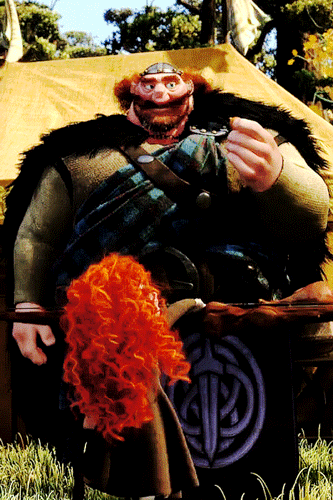
King Fergus is named in the film, survives until the end, and he raised Merida himself.

Chief Tui is named in the film, survives until the end, and he raised Moana himself.
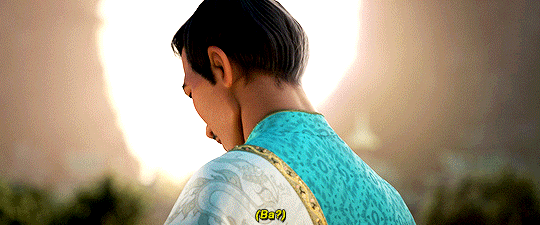
Chief Benja is named in the film, survives until the end, and he raised Raya himself.
Out of fifteen Disney Princesses/Queens, three Princesses have mothers who have names, who survive until the end of the film, and who raise their daughters themselves, compared to seven Princesses who have fathers who have names, who survive until the end of the film and who raise their daughters themselves.
Stay tuned for part two!
4 notes
·
View notes
Text
I will always find the fact that Eric loved and accepted Ariel as she was, presumably mute (without being aware of what had taken place prior at all) to be very loving and amazing. That goes to show how much he loved her and also how much of a compassionate and patient person he was. This is also the only Disney Princess couple where one party wasn't even human, and that did not bother him at all, either. I think that's a great message to send to children, and since the movie has a leading lady, to girls, specifically. You will be able to find a guy who loves and accepts you as you are and will support you in your dreams.
#ariel#eric#disney#the little mermaid#meta#disney meta#character analysis#txt#it also makes him ahead of his era because at that point people definitely did not give a damn about disabled people#and eric just assumed ariel to be disabled but he still loved her no matter what#and ariel has also been read as an autistic character which would even more subtext to the relationship#i love stanning the best disney princess and prince 💁🏽♀️#honestly i think that movie did that message slightly better than batb tbh#don't get me wrong i love that movie but tlm prolly did it better
26 notes
·
View notes
Text
SORTING DISNEY LADIES (1995-1998)
Part 1 - Disney Ladies 1937-1985
Part 2 - Disney Ladies 1988-1993
I’m going in chronological order, and doing both A Squad and B Squad, because I’m interested in tracking how the ideal “disney girl” has changed in the past 85 years (right now I’m only looking at the human-shaped heroines of Disney animated theatrical releases) A more detailed break-down of the system I’m using is right here, but the basics are these:
PRIMARY (ie MOTIVE)
BADGER ~ Loyal to the group.
SNAKE ~ Loyal to yourself and your Important People.
LION ~ Subconscious Idealist. Ideals are linked to feelings and instincts.
BIRD ~ Conscious Idealist. Ideals are linked to built systems and external facts.
SECONDARY (ie METHOD)
BADGER ~ Connect with the group. Make allies, work steadily and well. Be whatever the situation calls for. If you find a locked door, knock.
SNAKE ~ Connect with the environment. Notice things. Tell people what they want to hear. If you find a locked door, get in through the window.
BIRD ~ Collect skills, tools, knowledge, personas, useful friends. If you find a locked door, track down the key or learn to pick the lock.
LION ~ Be honest, be direct, speak your truth. Either the obstacle is going down or you are. If you find a locked door, kick it in.
POCAHONTAS (1995)
(& John Smith)
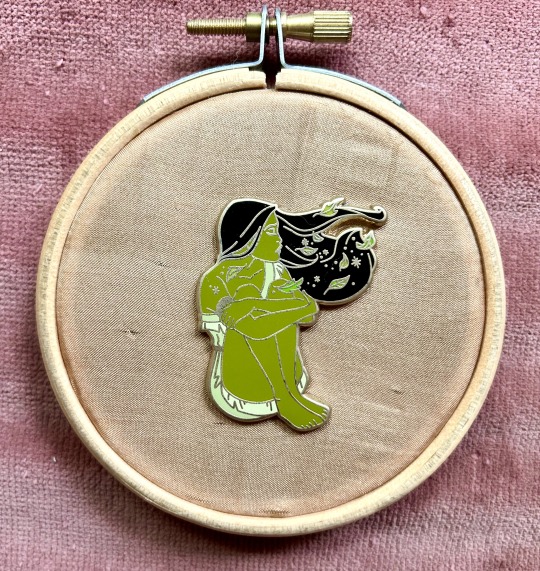
Pocahontas is an incredibly loud Lion Primary. Marrying Kocoum is the good choice, the responsible choice, the right choice - she knows this - but she just can’t do it. It feels wrong. She “goes wherever the wind takes her,” accompanied by the swirling leaves that are a kind of physical manifestation of her primary, since they match up so perfectly with the compass. (Classic Lion primary metaphor - see also Jack Sparrow.) When Pocahontas doesn’t know what to do she dreams of the confusing “spinning arrow,” but when she does... that arrow points straight in one direction and she just goes. She “listens with her heart” to the degree that it gives her superpowers.
It’s tempting to say she’s a Lion secondary too. She enjoys whitewater rafting and BASE jumping, which I guess are activities stereotypically associated with Lion secondaries. Also, the climax of the movie does involve her physically flinging herself across John Smith’s body. BUT her big song (“Colors of the Wind”) is just so, so, SO Bird secondary. John Smith isn’t getting it, and so Pocahontas’ response is - let me explain my worldview, show you, you clearly don’t have all the information. She’s a problem-solving Bird. Pocahontas’ first instinct when the English arrive is to investigate from the shadows, with two animal sidekicks that represent Curiosity and Caution. (Which is perfect, because is that not what a Bird secondary is? Observe, assess, plan.) Pocahontas is also convinced that there must be some perfect way of explaining her situation to the rest of her tribe that will make them get it. In her eyes, the problem is again that they don’t have all the information. This is almost a Bird secondary compulsion.
As for John Smith, well. His arc is about shifting his definition of “Person” to include everyone he categorized as “savages” early in the film. That’s very Badger primary character development, and John Smith is very Badger primary. He loves being part of a group, he loves his men, and the fact that he doesn’t really belong anywhere bothers him. The implication is that he keeps going to all these “New Worlds” trying to find one where he fits. It’s a cool bit of costume design that he’s the only one in Spanish armor - like maybe he did a similar trip with the Spanish conquistadors a few years ago. And it’s gutsy that his ‘I want’ song (“Mine”) is literally a duet with the villain. Like, sure John Smith and Governor Ratcliffe don’t like each other, but they start off with pretty similar politics.
I like that at the end John isn’t accepted into the Powhatan tribe or something. He finds personal peace by redefining his own community, and gaining a broader perspective on the world. HE is absolutely a Lion secondary though: really straightforward, cannot lie, and always solves problems by throwing himself physically at them. Pocahontas only does that the once, after her Bird secondary strategy - trying to reason people around to her point of view - didn’t work.
ESMERALDA (1996)
(& Quasimodo, Claude Frollo, Phoebus)

At first Esmeralda seems like she might also be a Lion primary. She’s the revolutionary, she stands up on platforms and yells things like “Justice!” Even through all the adaptational changes, the Victor Hugo soul of the story is still very much there, and he loves a Lion primary. But… that’s not really where Esmeralda is coming from. She cut Quasimodo’s bonds very specifically to try and change the vibe of the room - “Letting the crowd torture that poor boy? I thought if one person could stand up to him…” And that’s a Badger primary motive. Esmeralda has deep roots in her outsider community, and being separate from them (trapped in the cathedral) is very, very bad for her.
But then she brings Notre Dame itself into her community. Esmeralda goes up to the statue of Mary, the cathedral's patron, and says, “Still I see your face and wonder / if you were once an outcast too.” Once she does that, the ‘outcast’ bellringer of Notre Dame and even the building itself start fighting for her. It’s important that Esmeralda’s ‘I want’ song has nothing up to do with her at all. “God Help the Outcasts” is about helping her community - the outcasts. We get lines like “I ask for nothing, I can get by / for I know so many less lucky than I” which are all about Badger primary need-basing. Esmeralda consistently goes to whoever needs her help the most, doesn’t matter if she knows them or not. And her way of helping Quasi is to give him a map of the city that brings him straight to her Community.
It’s nice to pair this very understanding, inclusive Badger primary with basically a Jack Sparrow secondary. Esmeralda likes disguises. She likes improvising weapons. She improvises her escapes, and comes up with stuff as she goes along. She also has a lot of faces that are all equally her. She is the sexy pole dancer. She is also the grounded, spiritual earth mother, and when her primary requires it, she’s the revolutionary too.
If you put the weird tonal mismatch that is the gargoyles to one side, this film has a really elegant little structure. There are three men who are in love with Esmeralda: Quasimodo, Claude Frollo and Phoebus. And it’s subtly done, but Quasi and Frollo both dehumanize her - Frollo by only seeing her sexy side and deciding she’s a demon temptress, and Quasi by only seeing her more motherly side and deciding she’s an angel. I always thought it was interesting that “Heaven’s Light” and “Hellfire” - Quasi and Frollo’s songs about Esmeralda - are back to back, with similar titles, even the same track on the soundtrack. They’re almost a duet, and I think it’s a way of showing that there are two ways to make someone inhuman. (In a movie that is SO interested in the idea of what makes someone inhuman.) And then Phoebus just sees Esmeralda as… this cool chick, with a great sense of humor and some sweet moves, who he’d like to get to know better. Of course she goes with him.
Frollo, Phoebus and Quasi are ALL Lion secondaries (no wonder they butt heads.) It’s harder to tell with Quasi, because his secondary is so ridiculously Burnt, and only wakes up once his Snake primary finds something to latch onto that isn’t Frollo… which takes him most of the movie. Phoebus has a very straightforward Paragon Lion primary that seems to match up with Esmeralda’s Badger, and Frollo, oh man. Frollo has the most twisted Bird primary imaginable. He has a belief system that is impossible to live up to, so - instead of maybe questioning that - he blames Esmeralda? Or he blames God? for making Esmeralda too tempting for him to resist? and so therefore it’s not his fault? He’s a Bird Primary who consistently fails at following his system, and deep down he knows it. That’s why he’s so scared of the actual Notre Dame cathedral, why it keeps hurting him, and why it ultimately kills him. He cannot look those statues in the face, he cannot look at the system he tells himself he follows better than anyone else.
(Inspector Javert of Les Mis is also a Bird Lion villain. Big Victor Hugo trope.)
MEGARA “MEG” (1997)
(& Hades)
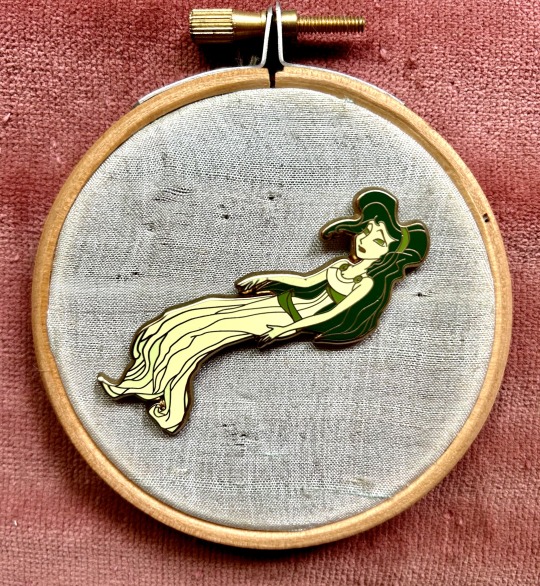
Meg is the example I would use to illustrate a Burnt Snake primary. She sold her soul (gave up everything) for her boyfriend, he left her, and now she doesn’t think it’s safe to love like that again. “Look I learned my lesson, okay? I’ve sworn off man handling.” Meg won’t let herself trust anyone: “He comes in with this big handsome farm boy act, but I can see though that in a Peloponnesian minute.” It’s because she doesn’t trust herself: “If there’s a prize for rotten judgement / I guess I’ve already won that.”
Her only connection in the world is Hades, this weird and kind of compelling combination of bitchy best friend and shady producer who’s trapped her in a bad five-record deal. They are both similar flavors of Snake secondary, which is how they they can be antagonistic… but still kinda get each other, and work well together. They both enjoy sitting in a kind of blunt Neutral, but get things done by being charmers - creatively telling the truth, and switching approaches quickly in order to to figure out what resonates best with the person they're talking to.
We see Meg use Hercules’ fan girls as a smokescreen to sneak into his villa, and then talk him into playing hooky and having a night on the town. After which, she falls into his arms with her line about “weak ankles” as a way to get him to get him talking about potential weaknesses. But of course, she catches feelings and her big song “I Won’t Say I’m In Love,” is a nice little portrait of a Snake primary unBurning. Meg goes from not trusting herself at all, to deciding that… maybe it could be different this time.
And this is where Hades misreads Meg, which is ultimately his downfall. He assumes that Meg is a Lion primary like he is. Because Hades is (a bit of a narcissist) and a huge Glory Hound Lion. He hates that he got the shitty assignment, hates that things are “a little dark, a little gloomy, and as always, hey - full of dead people." He wants to be the top dog, he wants to be Zeus. So he offers Meg freedom. That's what a Lion primary like him would want more than anything, were he in her position. But Meg’s not a Lion. She’s a Snake. So we get exchanges like this:
HADES. Hear that? It’s the sound of your freedom, fluttering away.
MEG. I don’t care. I won’t do anything to hurt him.
And Hades just does not see that coming.
FA MULAN (1998)
(& Fa Zhou, Mushu, Li Shang, Shan Yu)
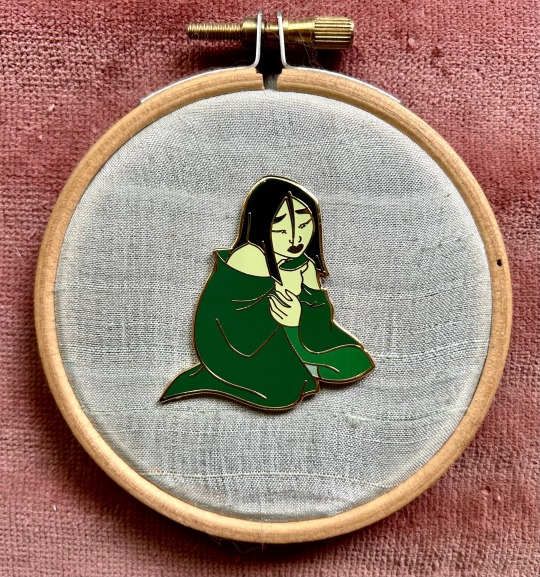
So my question is... why does Mulan run away and join the army? Get the obvious answer out of the way - it's not “to uphold the family honor."
FA ZHOU. It is an honor to protect my country and my family.
MULAN. So you’ll die for honor?
Fa Zhou is definitely a Badger primary, and Mulan… isn’t. She doesn’t get it. He’s not speaking her language. But she clearly loves her dad, and the next explanation we get is that she did it all to protect him. However, at her lowest and most vulnerable she says - “Maybe I didn’t go for my father. Maybe I went to prove that I could do things right.” That’s an interesting shift. Now the issue isn’t with why she acts, it’s with how she acts. Which means Mulan’s internal conflict isn't coming from her primary, it's coming from her secondary.
This is where we start getting into gender and gender performance. There is a lot of Badger secondary in this movie, and it’s all framed as female (Mulan's mom and grandmother are both Badger secondaries, for example.) There’s also a lot of Lion secondary, which is framed as male. (Fa Zhou, Li Shang, and Shan Yu are all Lions.) And Mulan… tries both options, and fails both times. She gets into a huge amount of trouble trying to be the quiet, caretaking bride at the matchmaker’s, and just as much trouble trying to be the brash, fight-starting Ping at the camp.
Then we have Mushu, who is Mulan's Lion secondary coach… despite not being a Lion secondary himself. He wants to be - disgraced failure Mushu is introduced trying to breathe fire and shake awake the bigger, tougher Great Stone Dragon. He’s trying to seem like an intense Lion when he is happiest and most effective doing a more Badger secondary thing. He comforts Mulan, makes her breakfast, carefully forges letters, wins her allies and generally gets… maternal (“my little baby is all grown up and saving China.”) This is a smart movie, and in a very light, comedic way… it’s saying that Mulan is not the only one self-sabotaging because of gender presentation roles.
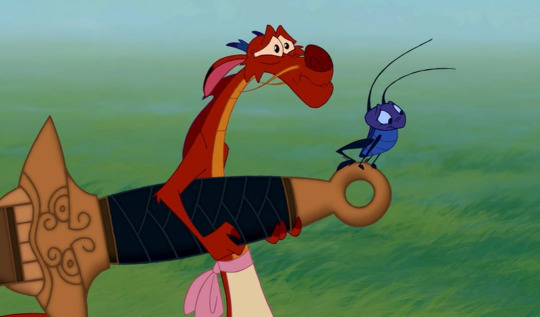
So Mulan tries to be a Badger, which doesn’t work. She tries to be a Lion, which doesn’t work. And eventually, of course, realizes that she was a clever, inventive Bird secondary all along. We are introduced to her while she's making little gadgets to do her chores, and when she taps into that she becomes powerful. She is able to figure out a way to use the handicap weights to climb the post and reach the arrow, and defeat Shan Yu’s army by starting an avalanche. She even finds time to plan during the heavily improvised final battle in the palace. Mulan coordinates a two-pronged attack, luring Shan Yu up onto the roof, where she knows Mushu is already in place with a rocket.
As for why she does things… Mulan has an intrinsic inner truth, and just wants to project that truth out into the world. She’s a Lion primary who wants to “be myself” be “true to [her] heart,” and not hide. “When will my reflection show who I am inside?” Lion primaries will get hit especially hard with that kind of identity angst.
And to round out the sorting for this film (which really holds up) - Mushu is probably a Lion primary like Mulan, which is why he gets where she’s coming from. He starts off as a bit of an immature “stage mom” Glory Hound Lion, but gets better. Shang is definitely a Loyalist, probably a young Badger primary. (I think Mulan just likes Badger Lions, her dad is one too.) Shang is very group-orientated, wants to be “the leader of China’s finest troops - no, the greatest troops of all time!” He's also, to be honest, kind of Establishment. Shang has a much harder time getting his head around Girl!Ping then Mulan’s more Snakey buddies, and ultimately needs an authority figure to tell him to cut it out. And Shan Yu, the film’s comment on toxic masculinity, seems like an Exploded Lion primary. He gives his motivation in the first scene- “[the Emperor] invited me. By building his wall he challenged my strength.” Which means that - with the single exception of Hades... all the guys in this wave have been masculine-coded Lion secondaries, and the heroines aren't girly Badgers, but the cool "third option" - Birds or Snakes.
Tl;dr
Pocahontas ~ Lion / Bird (occasional Lion model)
John Smith ~ Badger / Lion
Esmeralda ~ Badger / Snake
Quasimodo ~ Snake / Burnt Lion
Phoebus ~ Paragon Lion / Lion
Claude Frollo ~ Burnt Bird / Lion
Megara ~ Burnt Snake / Snake
Hades ~ Immature Lion / Snake
Fa Mulan ~ Lion / Bird (unhealthy “girl coded” Badger performance) (unhealthy “boy coded” Lion performance)
Fa Zhou ~ Badger / Lion
Mushu ~ Immature Lion that matures / Badger (unhealthy Lion performance)
Li Shang ~ Badger / Lion
Shan Yu ~ Exploded Lion / Lion
(art credit to Cursed Concepts for the beautiful pins I have used to illustrate this post.)
#sortinghatchats#shc#disney#wisteria sorts#disney princess analysis#disney princesses#pocahontas#pocahontas meta#john smith#hunchback of notre dame#esmeralda#phoebus#quasimodo#claude frollo#judge claude frollo#esmeralda meta#disneys hercules#megara#hades disney#mulan#mulan meta#mushu#fa mulan#fa zhou#li shang#shan yu
76 notes
·
View notes
Text
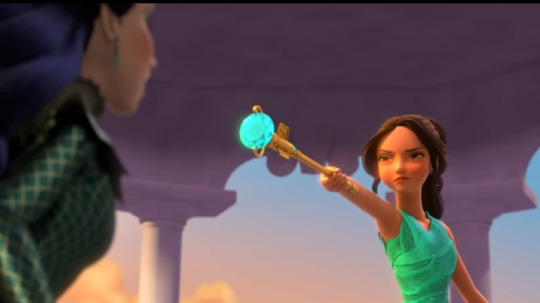
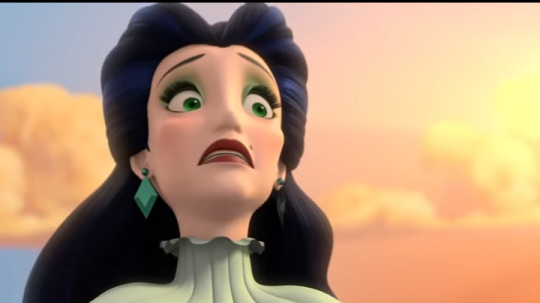

Love how Elena of Avalor handled Shuriki's defeat usually there be some "if You kill them you'll be like them" or a conveniently placed obstacle. Not here. You just have Elena speak one word, followed by relief at finally getting justice. It's so cathartic to watch!

Instead of having Elena feel guilt or "turn evil" she gets to enjoy the justice she, her loved ones and her kingdom deserves. It's so rare having a kid's media show especially disney, for the hero to delete the villain on their own terms.
This may or may not be written out of personal salt over claims that disney don't have classic villains anymore even tho they're still around. Shuriki doesn't get redeemed, Elena doesn't reason with her. She simply executes the woman like the tyrant she is.
Bonus:

#elena of avalor#elena castillo flores#princess elena#disney#disney junior#disney channel#disney princesses#disney princess#shuriki#villains#heroine#character analysis#meta#essay#cartoons#animation
208 notes
·
View notes
Text
FUCKING
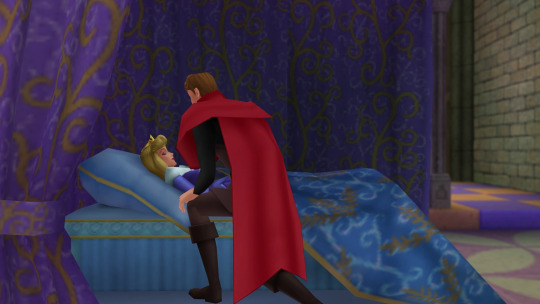
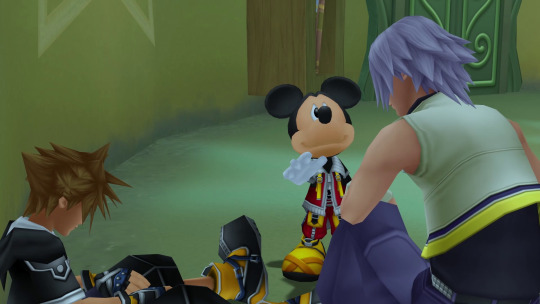
REWATCHING CUTSCENES (AS USUAL) AND REALIZED THAT WHEN RIKUS ABOUT TO DIVE INTO SORAS HEART, HES LITERALLY IN THE EXACT SAME POSE AS PRINCE PHILLIP WHEN HE WAS WAKING AURORA (BENT DOWN ON RIGHT KNEE WHILE LEFT ARM RESTS ON LEFT KNEE)
AND THE SHOT IS FRAMED THE SAME WAY TOO???????
ADDITIONALLY,
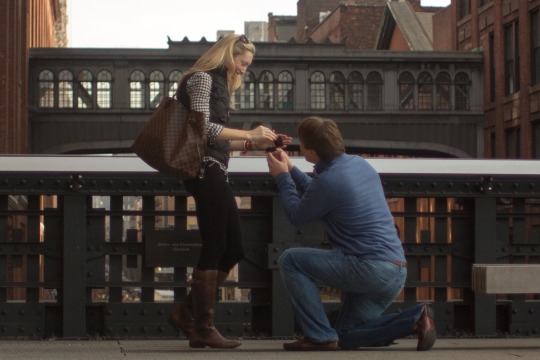
(IMAGE SOURCE)
HELLO????? HELLO?????????????????

#KINGDOM HEARTS#SORIKU#BBS#DDD#DISNEY#DISNEY PRINCESS#KH META#ALI'S KH META#DDD CAME OUT AFTER BBS SO LIKE#[AMERICA EXPLAIN VOICE] NOMURA EXPLAIN#GONNA TRY TO UPLOAD THE REST OF MY SR WEEK STUFF IN A SECOND I JUST NEEDED TO SCREAM ABOUT THIS
69 notes
·
View notes